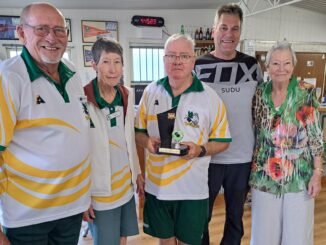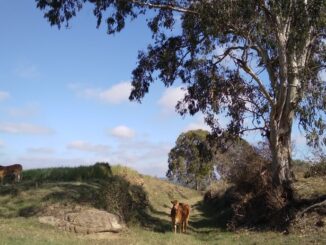
The Scenic Rim’s new Area Commander has put out a call for more firefighters as crews gear up for a season of fast-moving grass fires.
As Area Commander for Scenic Rim, Inspector Joe Pope is responsible for 115 auxiliary personnel and 12 trucks across eight stations at Canungra, Tamborine Mountain, Beaudesert, Kooralbyn, Rathdowney, Harrisville, Kalbar and Boonah.
When the Canungra Times caught up with Inspector Pope, he was short 15 staff across the Command, including needing three more staff in Canungra.
Inspector Pope has been with the Queensland Fire and Emergency Services (QFES) for 10 years and was with the New Zealand Fire Service for 20 years before that.
He went straight from Rotorua to Rockhampton and after several years working out of the State Operations Centre, including during Covid and the floods, he was keen to get back into an operational role locally.
“I live down the road at Cedar Grove, so wanted to get back to an Area Command role and support the auxiliary firefighters in the area,” he said.
“We’re looking to bolster our crews locally, especially during the day, so we’re keen to recruit people who already live and work locally.”
Auxiliary firefighters don’t need any experience in the field, but must be 18 or older, have held a class C drivers’ licence for at least one year, be an Australian or New Zealand citizen and have their employers’ consent to leave work for callouts.
Auxiliary Firefighters are casual, station-based firefighters who respond to emergency situations when the demand arises. The roles are classed as 0.1 full time equivalent and most auxiliary firefighters also have paid work elsewhere.
Auxiliary work varies based on callouts and there is a two-hour weekly training requirement each week, with Canungra auxiliary staff training Wednesdays.
Canungra station has nine firefighters and needs three more.
Inspector Pope said the work was varied.
“There’s car accidents, alarms at premises, structure fires, assisting with rescuing hikers, farm accidents, clean-outs after flooding, assisting the rurals with grass fires – there’s plenty of variety,” he said.
“It’s a great way to gain difference experience, assist the community you live in, feel camaraderie with the crews.”





